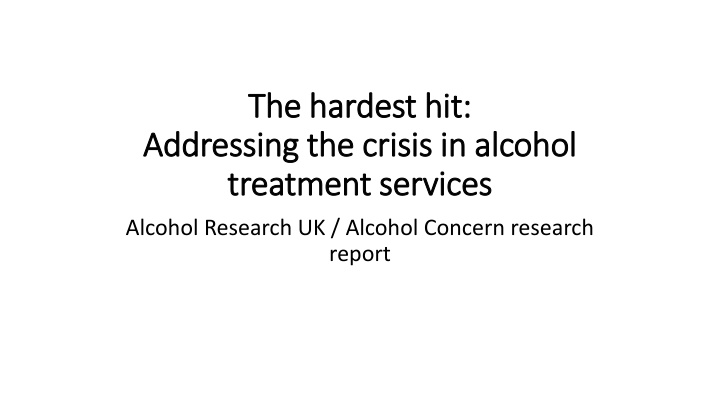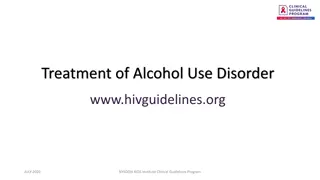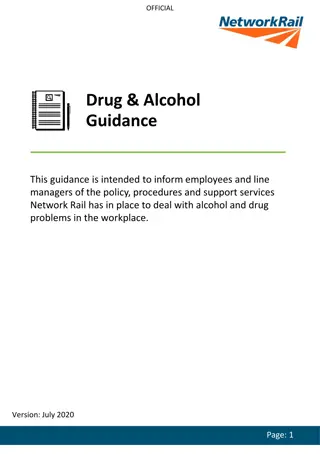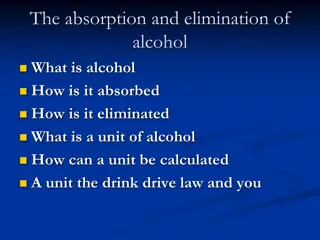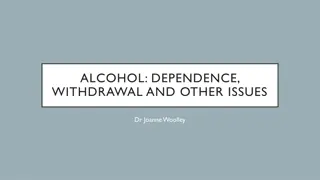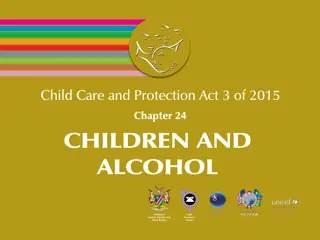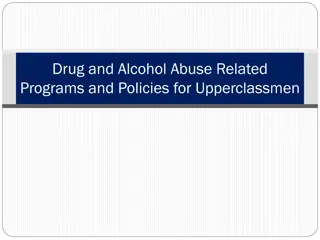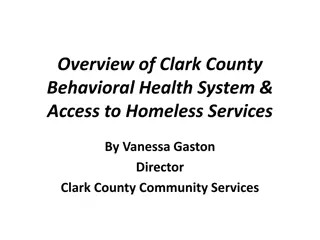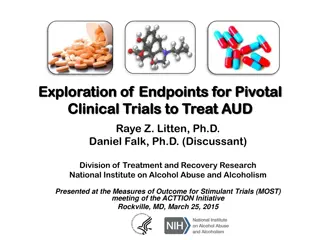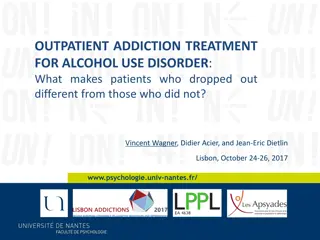The Alcohol Crisis in England: Addressing Treatment Services
Well-resourced alcohol treatment services in England face challenges such as funding cuts and staff shortages, impacting their ability to reduce alcohol-related harm. Recommendations include developing a National Alcohol Strategy and conducting an independent review of commissioning services.
Download Presentation

Please find below an Image/Link to download the presentation.
The content on the website is provided AS IS for your information and personal use only. It may not be sold, licensed, or shared on other websites without obtaining consent from the author.If you encounter any issues during the download, it is possible that the publisher has removed the file from their server.
You are allowed to download the files provided on this website for personal or commercial use, subject to the condition that they are used lawfully. All files are the property of their respective owners.
The content on the website is provided AS IS for your information and personal use only. It may not be sold, licensed, or shared on other websites without obtaining consent from the author.
E N D
Presentation Transcript
The hardest hit: The hardest hit: Addressing the crisis in alcohol Addressing the crisis in alcohol treatment services treatment services Alcohol Research UK / Alcohol Concern research report
Method Method Online survey - 154 responses from an array of professional backgrounds as well as service users. 1,200 open comments were submitted as part of the survey. 40 telephone interviews with a purposively sampled range of stakeholders. Cross reference to reports by the ACMD & the Recovery Partnership Review from an external group of expert stakeholders Internal organisational expertise Evidence from separate work on serious case reviews
Alcohol services in England are in a crisis Alcohol services in England are in a crisis Well-resourced and skilfully delivered alcohol treatment can play a decisive role in reducing alcohol s harm yet they face: Swingeing cuts in funding Rapid re-tendering cycles Loss of qualified staff and Lack of political support.
The evidence of impact Cuts of between 10% and 58% Respondents talked of: an assault on funding (clinical specialist), phenomenal workloads (service user), paring back to a skeleton service (treatment provider).
13 recommendations covering National strategy Investment Commissioning structures The challenge of joint alcohol and drug services Services to high impact, change resistant drinkers The combination of mental health and alcohol problems Staff skills and training
Recommendation 1 The Government develops and implements a National Alcohol Strategy that affirms the critical role alcohol treatment plays in reducing social harms and that outlines how treatment services fit within a broader suite of interventions to reduce alcohol harm.
Recommendation 4 An independent review of the commissioning of alcohol services is undertaken to ensure it delivers the safest, most effective and best value services.
Recommendation 9 Commissioners take clear action to promote assertive outreach and other approaches that bridge the gap between identification and treatment, particularly among high need, high impact drinkers.
Real people and real lives Real people and real lives Serious case reviews are informing our thinking in particular the case of Angela Wrightson
Alcoholic Angie In three years, over 1000 recorded direct contacts with mental health and alcohol services, ambulance, hospital 472 reported incidents to the police
Commissioning of alcohol services Alcohol services are described as having less continuity in terms of service delivery. Contracts for this service change because of commissioning decisions every few years. Professionals have explained in the review that when the provider changes those who had been cared for within the service lose established contacts and rapport with workers. 12
Alcohol interventions The alcohol service work being done with Carol was not meeting set goals and that service withdrew in December 2013. The rationale was that Carol s behaviours, which she could not self manage, undermined the services work. any positive engagement This was not challenged at the time by the integrated mental health team or any other agency. (ref. 3.4.12 and 3.4.22) 13
